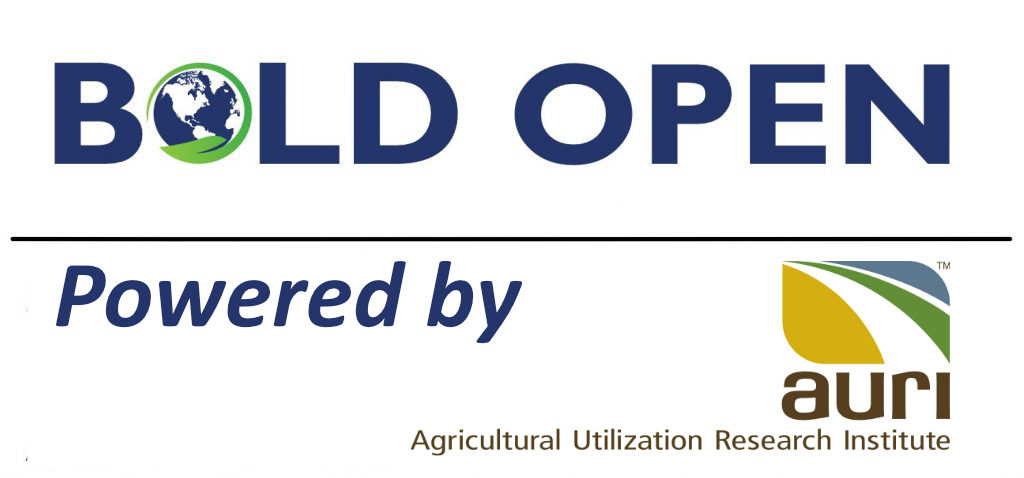Market Development Pathways for
Winter Camelina
Open Innovation Challenge:
MBOLD is seeking input on strategies to commercialize winter camelina seed, protein isolates, oil, meal and other crop components and accelerate market entry opportunities for winter camelina in the U.S. Our primary focus is food and animal feed, but we also welcome input on the potential for expanded use of winter camelina in bioplastics and biofuels.
Reason for Seeking External Innovation Partnership:
Camelina (primarily spring types) is already grown and marketed in countries outside of the United States and many lessons have been learned about market opportunities and challenges to successfully commercialize this crop. MBOLD is partnering with the University of Minnesota – Forever Green Initiative to identify product applications for winter camelina oil, protein and meal that can help drive winter camelina production in the Midwest toward scale.
MBOLD’s exploration of winter camelina is driven by our desire to support the adoption of cover crops in Midwest agriculture, particularly in the production of corn, soy, wheat and other major commodities, as a means to advance soil health, improve water stewardship, sink carbon and improve farm and supply chain resiliency.
U of M Forever Green has developed options for integrating winter camelina into current Midwest cropping systems, including a promising 3-year rotation system. That system features a season of small grains or other short-season crop (e.g. wheat, oats, hybrid rye, pea or corn silage) followed by winter camelina, relay-cropped the following season with soy, followed by corn.
MBOLD is seeking input on the core question “how can we use winter camelina and products derived from it?” in ways that would drive commercialization, create income diversification opportunities for growers and make progress toward soil health and GHG goals. We welcome input from researchers, processors, marketers and others across the value chain to identify potential applications for winter camelina that could be woven into our members’ supply chains or otherwise be leveraged to drive market development for this crop.
Scope of Solution Space:
MBOLD is seeking input on potential market applications and commercialization strategies for winter camelina, including seed, oil, protein isolate and meal. Our members are active across multiple food and feed categories and multiple stages of the supply chain so a wide range of product applications could potentially be relevant. We also welcome input on potential uses for other compounds that winter camelina contains (e.g. sinapinem and mucilages) and innovative processing techniques that could potentially generate additional value or overcome barriers to use of camelina.
In addition, we welcome input on these related topics:
- Research on breeding for desirable agronomic traits of winter camelina such as earlier harvest date
- Research on breeding to enhance camelina’s nutritional quality, shelf life or other functional properties
- Research on the carbon footprint of winter camelina and products made from winter camelina
- Identification of supply chain enterprises in the Upper Midwest that are interested in managing the production, aggregation, cleaning, primary processing and/or marketing of winter camelina seed, oil, protein or meal
- A market assessment of camelina products and market opportunities around the world.
Submitters representing BIPOC and women-owned businesses are highly encouraged to respond. We also welcome cross-border opportunities with knowledgeable stakeholders in Canada and other parties around the world.
Solutions Not of Interest:
- Funding proposals
Company Background:
At the MBOLD coalition, we believe that the future of food and agriculture must be one that nourishes a growing global population while protecting and preserving the Earth’s natural resource base for generations to come. Minnesota’s globally leading cluster of businesses, researchers, and food and agriculture producers has a vital role to play in making that future a reality. We work together to accelerate solutions to the most pressing challenges facing the food and agriculture sectors, particularly our changing climate and other natural resource challenges and the quest to meet the nutritional needs of a population of 10 billion by the year 2050. MBOLD members source products from more than 100 countries worldwide. We reach consumers in more than 125 countries and our revenues, collectively, exceed $250 billion per year. You can learn more about our members and initiatives at www.mboldmn.org.

